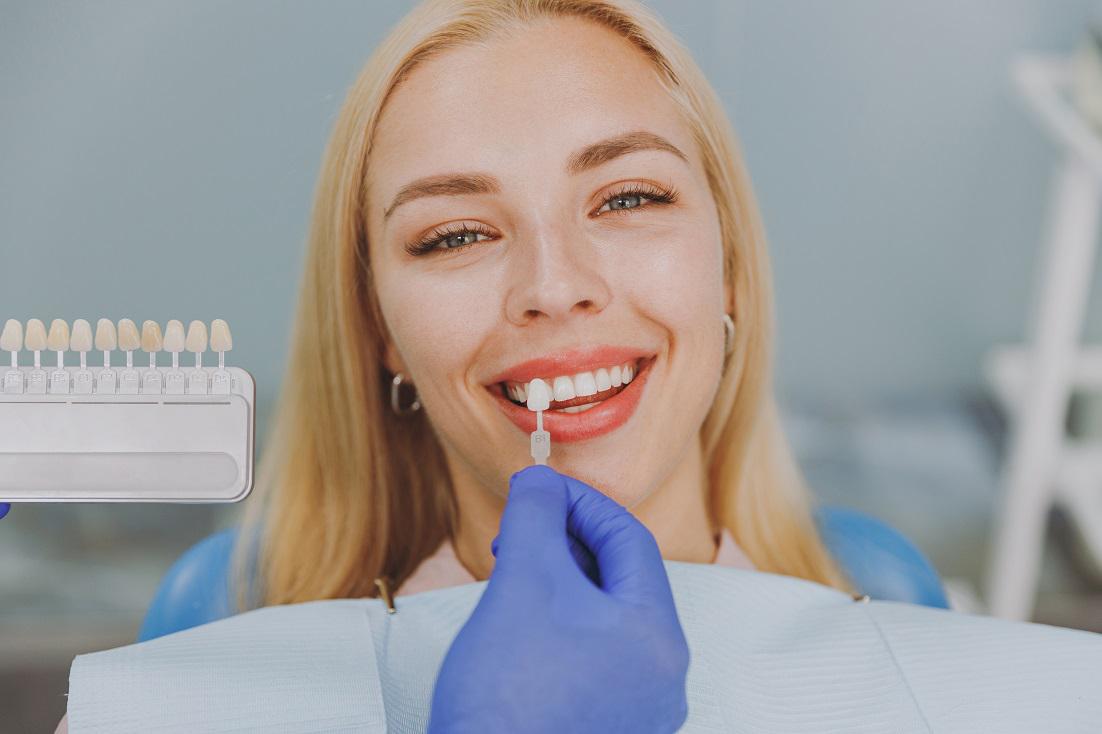Veneers are a popular cosmetic dentistry solution that can transform your smile by concealing imperfections and enhancing the appearance of your teeth. While veneers are durable and designed to withstand everyday wear and tear, proper care is essential to ensure they remain in optimal condition for years to come.
Here are seven key steps and practices to take care of your veneers, preserving the beauty of your smile and maximizing the longevity of this cosmetic investment.
1. Maintain Good Oral Hygiene
Veneers may enhance the appearance of your teeth, but they do not replace the need for good oral hygiene. Regular brushing and flossing are essential to keep your natural teeth and gums healthy. Use a soft-bristled toothbrush and non-abrasive toothpaste to avoid scratching the surface of your veneers. Ensure you are brushing twice a day for at least two minutes each time, reaching the fronts, backs, and chewing surfaces of your teeth.
2. Choose Non-Abrasive Dental Products
When selecting dental care products, opt for those that are non-abrasive. Abrasive toothpaste and harsh mouthwashes can wear down the surface of your veneers over time, potentially compromising their appearance. Our team can recommend suitable oral care products that are gentle yet effective for maintaining optimal oral health and veneer longevity.
3. Be Mindful of Your Diet
While veneers are resistant to staining, it's still essential to be mindful of your diet to prevent damage or discoloration. Limit the consumption of foods and beverages known to stain teeth, such as coffee, red wine, and berries. If you do indulge in these items, consider using a straw to minimize contact with your veneers. Additionally, avoid biting into hard or sticky foods that could potentially damage the veneer or compromise its adhesion.
4. Protect Your Veneers During Physical Activities
If you participate in contact sports or activities that pose a risk of facial injury, consider wearing a mouthguard. A custom-fitted mouthguard can provide essential protection for both your natural teeth and veneers, preventing chips, fractures, or other damage. Consult with our team to determine the most suitable mouthguard for your needs.
5. Break Free from Bad Habits
Certain habits can contribute to dental issues and compromise the integrity of your veneers. Avoid habits such as nail-biting, chewing on ice, or using your teeth as tools, as these actions can lead to chipping or cracking. Additionally, if you grind your teeth at night (bruxism), discuss this with our team when you come in for a check-up. We may recommend a nightguard to protect your veneers and natural teeth.
6. Schedule Regular Dental Checkups
Regular dental checkups are crucial for monitoring the health of your veneers and overall oral health. Our dentist will assess the condition of your veneers, check for any signs of wear or damage, and ensure they are securely bonded to your teeth. Routine cleanings and examinations provide an opportunity to address any issues early on, preventing more significant problems in the future.
7. Address Concerns Promptly
If you notice any changes in the appearance or feel of your veneers, such as sensitivity, discoloration, or a change in fit, it's essential to address these concerns promptly. Contact us to schedule an appointment for a thorough examination. Early intervention can prevent potential complications and ensure the longevity of your veneers.
Special Considerations for Porcelain Veneers
1. Gentle Cleaning Techniques
Porcelain veneers are known for their durability and stain resistance. However, it's crucial to use gentle cleaning techniques to maintain their luster. Consider using a non-abrasive toothpaste and a soft toothbrush. Water flossers or interdental brushes can be useful for cleaning between teeth without causing damage to the veneers.
2. Avoid Excessive Force
While porcelain veneers are resilient, they are not indestructible. Avoid applying excessive force when brushing or flossing, as well as when biting into hard objects. Using excessive force can lead to chipping or fractures, compromising the appearance and functionality of your veneers.
3. Stain-Resistant, Not Stain-Proof
Porcelain veneers are highly stain-resistant, but they are not entirely stain-proof. It's advisable to minimize the consumption of highly pigmented foods and beverages and maintain good oral hygiene to prevent any potential discoloration over time.
4. Regular Dental Checkups for Maintenance
Regular dental checkups are especially important for individuals with porcelain veneers. We can monitor the condition of the veneers, assess their bond to the teeth, and address any concerns or potential issues. Professional cleanings can also help maintain the pristine appearance of your porcelain veneers.
Learn More About Dental Veneers
Whether you have porcelain or composite veneers, understanding their unique characteristics and following the recommended care guidelines will contribute to a beautiful, healthy, and long-lasting smile. To learn more about dental veneers and how to maintain yours, contact our friendly dental team today!


